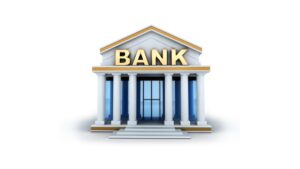Credit and Debt Management: A Comprehensive Guide to Building Credit, Managing Debt, and Repaying Loans

Introduction: Credit and debt are integral aspects of personal finance. Understanding how credit scores work, improving creditworthiness, managing debt responsibly, and implementing effective strategies for debt repayment are essential for financial well-being. In this blog, we will delve into the world of credit and debt management, providing valuable insights and actionable tips to help you navigate these aspects of your financial life successfully.
- Credit Scores: The Foundation of Your Financial Health Credit scores play a significant role in determining your creditworthiness. Here’s what you need to know:
- Understanding credit scores: Explore the factors that influence your credit score, such as payment history, credit utilization, length of credit history, credit mix, and new credit applications.
- Monitoring your credit report: Regularly review your credit report to ensure accuracy and identify any potential errors or discrepancies. You can access a free credit report annually from each of the major credit reporting agencies.
- Improving your creditworthiness: Implement strategies to boost your credit score, including making timely payments, reducing credit card balances, maintaining a healthy credit mix, and avoiding excessive new credit applications.
- Responsible Debt Management: Managing debt is crucial to maintain a healthy financial life. Consider the following tips:
- Evaluating your debt: Take stock of your debts, including outstanding balances, interest rates, and repayment terms. Categorize them based on priority, such as high-interest debts or those with more severe consequences for non-payment.
- Creating a budget: Develop a realistic budget that accounts for your income, expenses, and debt obligations. Allocate a portion of your income towards debt repayment while ensuring your essential expenses are covered.
- Debt consolidation options: Explore debt consolidation strategies, such as obtaining a low-interest personal loan or transferring high-interest credit card balances to a card with a lower interest rate. Consolidation can simplify payments and potentially reduce interest charges.
- Effective Strategies for Debt Repayment: Implementing strategies to repay debt efficiently can accelerate your path to financial freedom. Consider the following approaches:
- Snowball method: Start by paying off the smallest debt balance first while making minimum payments on other debts. As each debt is paid off, redirect the freed-up funds to tackle larger debts. This approach provides a psychological boost as you see progress.
- Avalanche method: Prioritize debts with the highest interest rates, as they cost you more in the long run. Make minimum payments on lower-interest debts while allocating extra funds towards the high-interest debt until it is eliminated.
- Debt negotiation or settlement: In situations of extreme financial hardship, consider negotiating with creditors to settle debts for less than the full amount owed. This option should be approached carefully, as it may have implications for your credit score.
Conclusion: Credit and debt management are critical components of a healthy financial life. By understanding credit scores, improving creditworthiness, managing debt responsibly, and implementing effective strategies for debt repayment, you can gain control over your financial situation. Remember to monitor your credit regularly, create a budget, explore consolidation options, and employ suitable debt repayment strategies. With commitment and discipline, you can overcome debt, improve your creditworthiness, and work towards achieving long-term financial goals.







